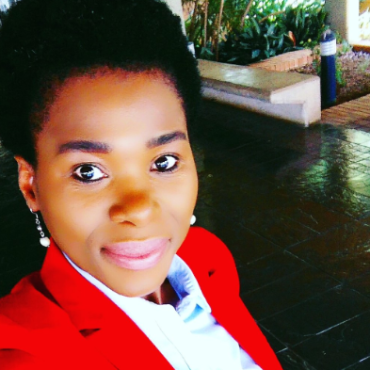-
play_arrow
On The Street On The Air | Kaya 959
Promised land: A reflection of South Africa’s development policy and approaches in the past 25 years
By Ndumiso Hadebe
The dawn of a democratic dispensation in South Africa, after the oppressive and inhumane government of apartheid, injected a new hope in the South African people and dare I say the people of the world; who had endured and supported in word and in deed the anti-apartheid movement to see the rising sun of a nation where regardless of their faith, colour, sexual orientation and background, they too could live to see a renaissance in the Southern tip of Africa that could lead people to believe in the highest ideals of the human race again; and the sunset of a world of conflict and prejudice.
Former President Nelson Mandela’s government of National Unity reached consensus on a Reconstruction and Development Programme (RDP) of South African society. Noting the fragmented, incoherent and discriminatory policies and fiscal allocation of resources through a piecemeal approach did not aid the process of building a real nation – purposefully so that is.
It was in galvanising support for investment by the private sector, foreign capital and society at large that President Mandela made bold to say that the Reconstruction and Development Programme of government should not be limited to meeting the basic needs of people, developing our human resources, building the economy and democratising the state and society from minority rule but to also extend towards the RDP of the soul of all South African people.
It is in light of this, that I wish to reflect on the development policy and approaches South Africa has implemented thus far in an attempt to reach a state of reconstruction and development of not only the material conditions of people, but of the state of their well-being. I do this, conscious of the fact that as humans, we learn better through hindsight as 20-20 vision, although we ought to seek to always look forward into the future.

The government of national unity had inherited a bankrupt state with significant budget deficits, a significantly weak current account, double digit inflationary levels, weakened business confidence and unsustainably high levels of debt as a percentage of GDP. Due to discriminatory policies, there was also a great shortage of scarce skills and infrastructure to aid the rebuilding process of a new nation. In addition, the international financial markets were also undergoing tremendous changes and as a result the dual currency had to be abolished on the 10th of March 1995, in the form of a Financial and Commercial Rand, exposing it to significant exchange rate risks, to an amalgamated currency that has since become the most traded emerging market currency in the world. The intended task of the RDP was to democratise the state and economy and create a strong, dynamic and balanced economy.

In an effort to fix something that was chronically broken, the RDP ignored the generation of new taxes to broaden government’s tax base and rather narrowly focused on fiscal prudence and the reallocation of existing revenues. Incapacity in the form of public sector managers also shortchanged the government’s attempt of having an effective programme.
In June of 1996, the Growth Employment and Redistribution (GEAR) policy was introduced, pronounced as an evolution of the RDP intended to achieve the goals set out in the RDP and execute a fiscal deficit reduction programme. Only from the 1990s as sanctions were lifted and the economy gradually liberated, did inflation start to decline. In the light of the sanctions against the country and a multitude of exchange controls, SA needed a monetary policy (relatively low interest rates) that would stimulate economic activity in the short term.
For nearly all of the 1980s inflation remained in double digits, breaching more than 20% in 1986. SA inflation remained high (for most of the 1980s) due to a substantially higher growth in broad money supply in SA than in its trading partners.
As a consequence, a formal exchange rate policy was formed using inflation targeting as an approach. Placing South Africa as one of the few countries that have enshrined the independence of the central bank in its Constitution. Thus, the current mandate of the South African Reserve Bank to protect the currency with the interest of price stability and sustainable growth. A hotly contested question today. Primarily because in 2019 the SA economy finds itself in a low growth environment with high unemployment and high interest rates. It therefore raises the question, is it as a consequence of a failure of monetary policy, industrial development and labour dynamism, the management of fiscal policy or is it exogenous factors in the global economy and where would that place a policy mix consideration and to what end?
By 2000, government consumption targets were met, together with fiscal deficit and inflationary targets. This was as a consequence of improved management of public finance and monetary policy. Albeit, unemployment was not being reversed at the rate at which would have been most desirable, poverty levels were still stubborn and exploitative wage practices were still common. Today – South Africa has promulgated the Minimum Wage Bill signed by President Cyril Ramaphosa in 2018 to address what has been one of the many challenges SA faces.
The stabilisation of the macroeconomic issues meant that whilst four consecutive quarters of growth greater than 4.5% were recorded, higher levels of capital formation and unemployment reversing under Accelerated and Shared Growth Initiative of South Africa (ASGISA) from 2006 – micro issues such as a shortage of critical skills , deficiencies in state organisation and volatility in the currency despite improved monetary and fiscal stance posed as a much more stubborn animal that had to be faced to reverse years of apartheid and colonial malfeasance.
The downturn of the global economy in 2008/9 served as a real test of the institutional and policy machinery that had been built up over the years. Albeit comprising less than 1% of the global population and economy, SA was able to manage the external shocks stemming from the downturn by (amongst many other policy approaches) utilising fiscal expenditure to drive aggregate demand in the economy. Had the important work of not stabilising SA’s debt levels and prudent management of public finances not been done, we would probably be reflecting on an acutely differently tail of events today.

Stemming from a reoriented global economy we saw the Medium-Term Strategy Framework (MTSF) in 2009 followed by the New Growth Path in 2010. Which sought to serve as a response to building an economy post the downturn whilst overcoming the structural challenges by increasing spending towards education outcomes, broadening access to quality healthcare, halving unemployment by 2014 and attaining a savings rate between 20% – 25%. We can of course say, that the new SA has in a very short space of time worked hard to record growing GDP per capita numbers, broadening access to education and healthcare to the poor and proletariat. Building confidence in the rule of law and fostering meaningful friendships in the diplomatic community as a facilitator of increased trade, development and good governance in the continent of Africa.
In developing our intellectual, analytical lens of the past 25 years, we can learn that a minor tinkering does not lead to fundamental structural change. The cancer of corruption (both on the side of the private sector and government) that had engulfed our nation pre-1994 to date which could be viewed spiritually as undergoing a form cleansing through the many commissions of inquiry; I shall take the liberty to quote the words of respected businessman and former Roben Island prisoner Moss Ngoasheng when he wrote in a 1992 paper on Transformation in a section titled: “The exciting critique and the dryness of policy”
“Activists within the mass democratic movement in many cases could easily relate to the intellectual output of pre-February 2. Focused as it were on critiquing the status quo and theorising the reasons for the overthrow of the apartheid system, this output was a reflection of their daily experiences on the ground. Though the relationship between theory and practice is not an unmediated one, still the activists could relate better to and were excited by intellectual output that project them as social actors, guided them in their daily struggles and helped shape their self-understanding.”
And so, in shaping our self-understanding at this reflective point in our history; as to whether or not there has been a substantive altering for the better of our material conditions and/ or reconstruction and development of our soul; as President Mandela asserted. To the extent that economic growth rates, balance of payments and currency fluctuations have a real impact in the lives of people. Have the policy approaches that we have adopted in the past 25 years done any better at improving the quality of people that we are today?
Written by: Zuko
25 years development policy Growth Employment and Redistribution (GEAR) Medium-Term Strategy Framework (MTSF) Promised land Reconstruction and Development Programme (RDP) reflection of South Africa
Similar posts
-
MORE ARTICLES

Independent Candidate Anele Mda unveils her election manifesto

Siyabonga Thwala to star in new action drama Empini

Are car headlights too bright these days?

“I love you with everything I am.” – Bonko Khoza to his wife Lesego on her birthday

“Catering for people you haven’t seen in years” – Unnecessarily expensive things at gatherings
-
QUICK LINKS
UpComing Shows

Point of View
With Phemelo Motene
Point of View with Phemelo Motene delves into the day’s current affairs, touches on real issues that affect people’s daily lives and shares expert advice on questions posed by the audience. Mondays to Thursdays 20:00 to 22:00.
close
959 Music Weekdays
Kaya 959 Hits
Real. Familiar. Memorable. Kaya 959 brings you the music you know and love from our playlist. Uninterrupted. Thursdays 20h00 to 21h00
close
The Best T in the City
With T Bose
He has held it down in the world of mid-morning radio with the best music, riveting topics, brilliant mixes and interesting guests. Every weekday, The Best T proves why he is the BEST by connecting to you like only your bro or favourite uncle could. He lets his listeners dictate the songs they want to hear in the ever-popular Top 10 at 10, and his Three Teaspoons never run out. Catch The Best T in the City Mondays to Fridays from 09h00 to 12h00.
close
Feel Good
With Andy Maqondwana
Feel good about feeling good! That's exactly what The Feel-Good show is about. An escape from the negativity that surrounds us, indulging you in good feels. Pass it on to one and all. Spread the good feeling around Gauteng with Andy Maqondwana.
close
The Hive
With Bonolo "Bee Sting" Molosiwa
Every "Hive" needs a Queen B and Bonolo "Bee Sting" Molosiwa is Kaya 959's honey who brings in the money. With her bubbly personality, infectious laugh, Bee Sting radiates positive energy which is all you need to get your weekend off to the best start. Don't miss the Afrobeat Dancehall Ragga (ADR) Top 10 on The Hive with Bee Sting every Saturday from 18h00 - 21h00.
closeConnect with Kaya 959
DownLoad Our Mobile App
© 2024 Kaya 959 | On The Street On The Air











